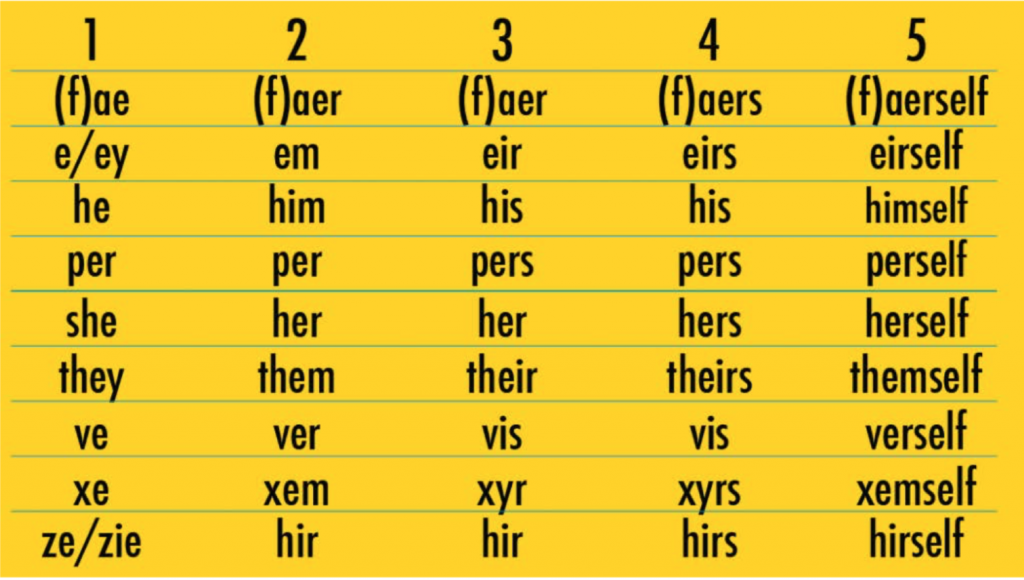Loyal Readers may remember my jousting with my School District over the NH School Board Association’s Policy JBAB – a policy, demanded by the passage of SB263 that:
“Gender Identity” became a Protected Class
School Districts were told that they SHALL create policies that would keep ALL of the Protected Classes from being discriminated against.
Much of my battle was with Section C that said that the School District had the Power to create a new Right for an Individual to coerce other Individuals’ speech (not their words but the practical result). Eventually, that entire section was slimmed down to this:
C. Names/Pronouns A student under this policy should be addressed by a name or pronoun that corresponds to the student’s gender identity that is consistently asserted at school
“Should” is my emphasis and is not bolded in the actual policy. At the time, I was more satisfied with this construction than the original which blatantly violated both the First Amendment as well as Article 22 (NH Constitution).
- The problem that has gnawed at me since is how that word could be interpreted:
- A synonym for “shall” which means, essentially, “it will be done”
A mere suggestion as in “you should but it’s your choice whether to follow it or not”. Leaving it as “should/shall” leaves the door open, still, for coerced speech. Substituting in:
It is suggested that a student be addressed…
So, what is the right thing to do? Ask – and point out that this issue, preferred pronouns and coerced speech, are finally rising to the court levels – and these speech codes (for that’s what they are, part of the Politically Correct movement is built on to crush any dissent against the norm changing Left). See my email to one of my elected representatives on the School Board, below:
—— Original Message ——
From: “Skip” <Skip@granitegrok.com>
To: Sanborn
Sent: 4/4/2021 4:24:29 PM
Subject: A formal question to the Gilford School Board – Policy JBAB and PronounsMr. Sanborn
Gilford School BoardMr. Sanborn,
Policy JBAB still has a section C within it that states:
C. Names/Pronouns A student under this policy should be addressed by a name or pronoun that corresponds to the student’s gender identity that is consistently asserted at school.
While the previous version of this section made the use of “preferred pronouns” mandatory, along with a statement on violations, it was reduced to this single sentence. However, “should” can be interpreted as:
- Defining a mandatory behavior (e.g., you WILL do….)
- Defining a voluntary behavior (e.g., strongly suggested but still leaving the hearer the ability to voluntarily decide for themselves whether to accept or reject the suggestion)
What is the current standardized definition now employed by the SAU73 School Board? Please note that I am NOT asking how the District Administration is defining it – but would I be correct in assuming that the Administration is hewing to the Board’s direction in this matter?
I ask in light of these court decisions:
- Fifth Circuit: A prisoner cannot demand that others call him by female pronouns (https://granitegrok.com/blog/2020/01/the-5th-circuit-on-preferred-pronouns-we-decline-to-enlist-the-federal-judiciary-in-this-quixotic-undertaking)
- Sixth Circuit Court of Appeals: Professor can’t be punished for not using transgender student’s pronouns, appeals court rules. Judge had also asked university if it would also force Jewish professor to address student as “My Fruhrer”: https://granitegrok.com/blog/2021/03/its-about-freaking-time-court-rules-individuals-cant-be-coerced-to-use-preferred-pronouns
Thus, it seems that the court system is now affirming that the First Amendment to the US Constitution outweighs and obviates mere Policy diktat.
Again, how does the Board view its language choices in light of such? As I do not have the emails of the other Board members (other elected representatives), would you be willing to pass this question along to them?
Kindest regards,
-Skip
I just found out that there is a School Board meeting tonite. I’ll be there to either:
- Get an answer
- Start the conversation
Which will they prefer – their own policy or respect our foundational Law?
